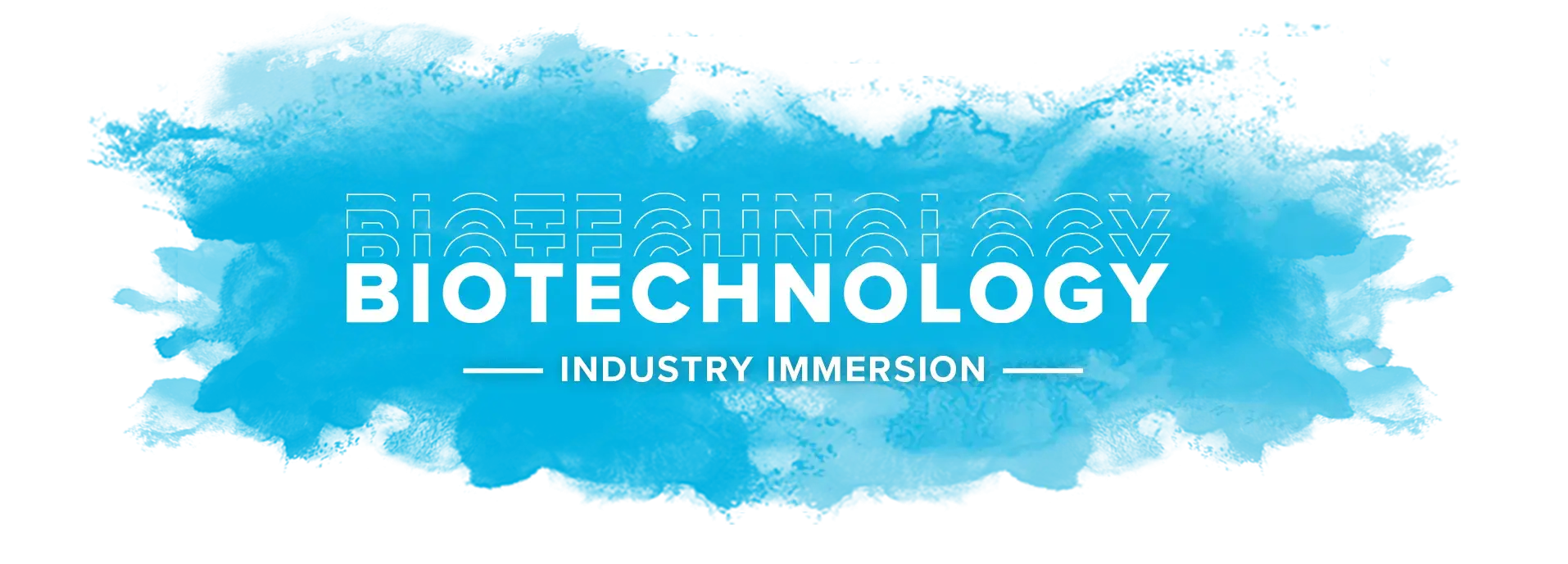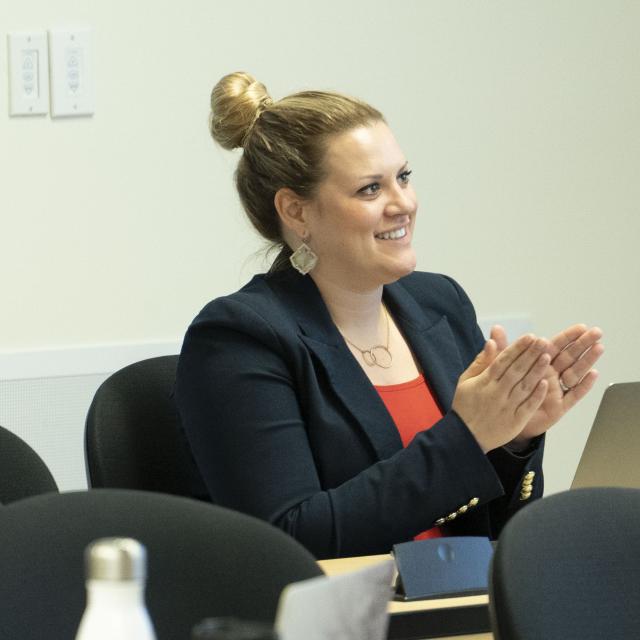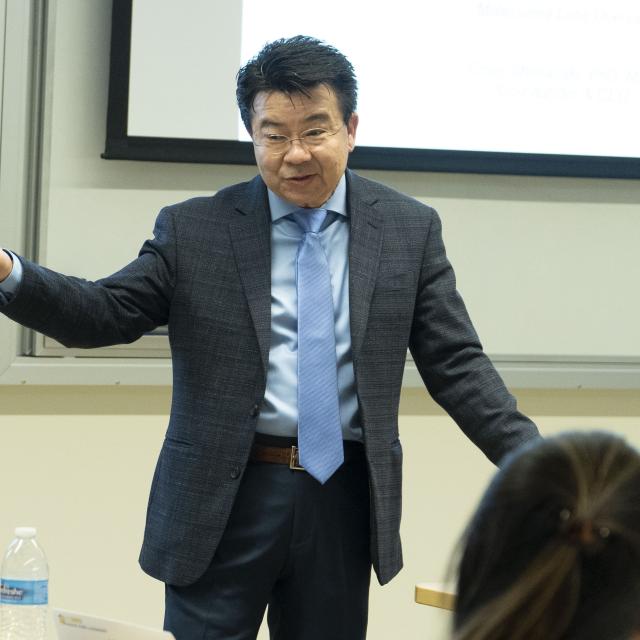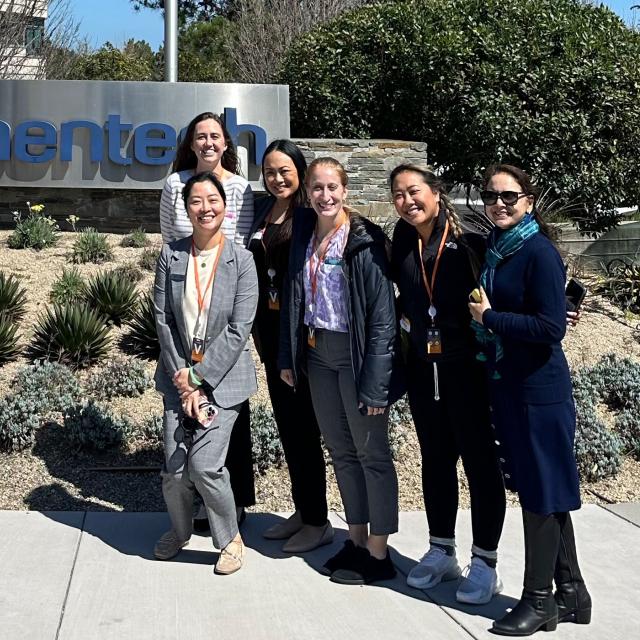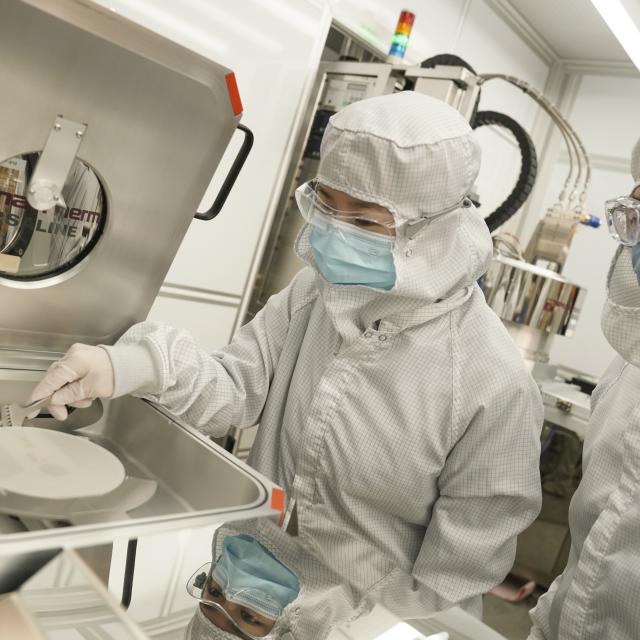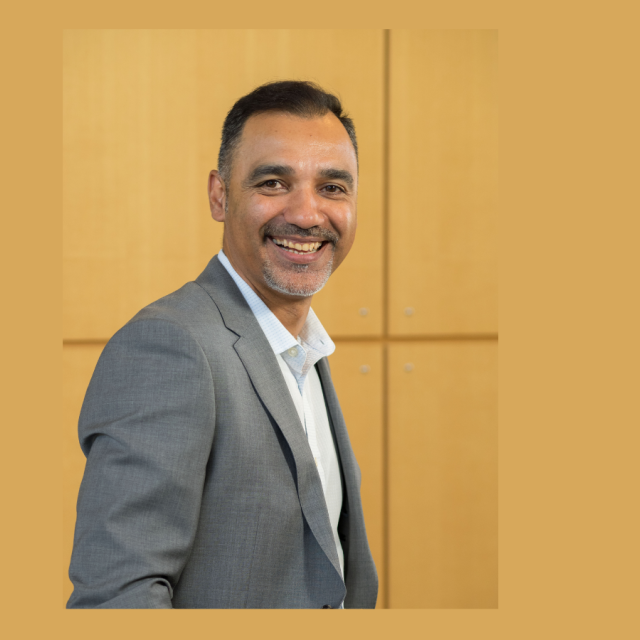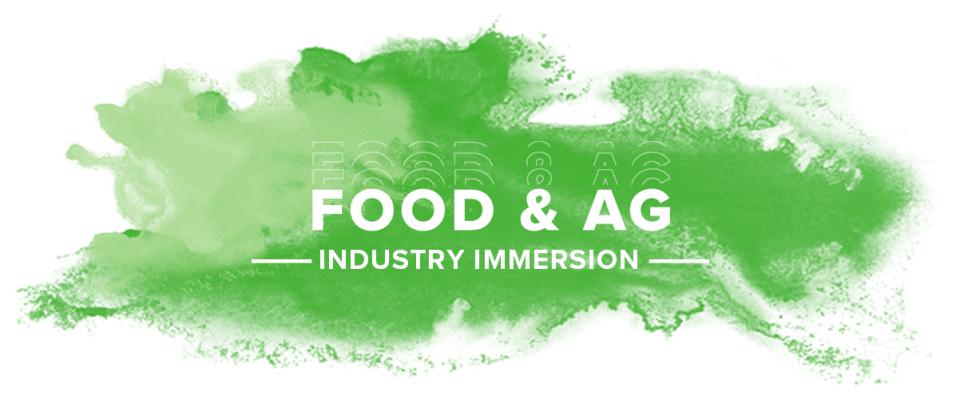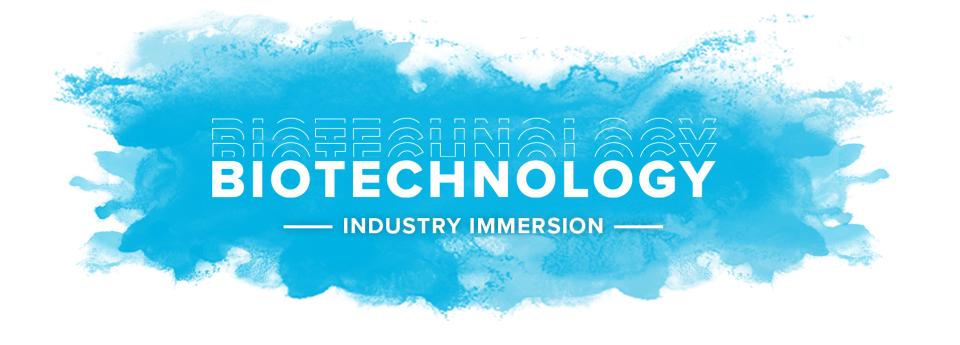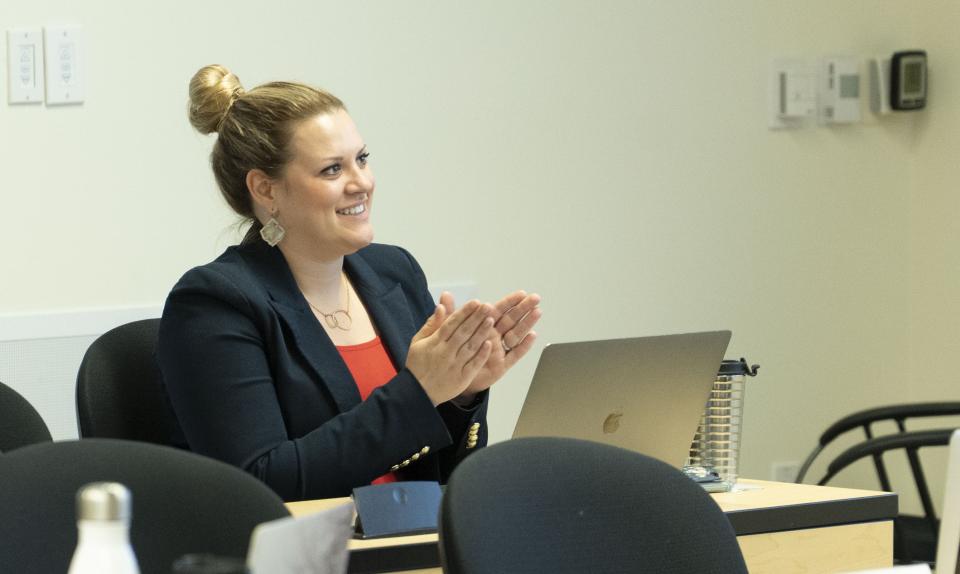
Turn ideas into action.
Develop creative solutions for top biotech executives that address their most pressing business challenges.
Our Biotechnology Industry Immersion offers you a transformational experience unlike any other. Even without a background in the industry or science, you'll be well-prepared to launch a new career.
Get Ready
Your journey begins in the fall quarter with the Pre-Immersion course. Denneal Jamison-McClung, who directs the UC Davis Biotechnology Program, introduces you to the science used in the biotechnology industry and a framework for understanding the complex forces that shape and drive it.
"The Biotech Immersion Program is a great way for MBA students interested in working in biopharma and other biotech industries to brush up on life science concepts and technology trends. I love working with business-focused students from a variety of backgrounds—their enthusiasm for moving new technologies from 'bench to bedside' and helping all of society benefit from biotech innovations is inspiring."
— Denneal Jamison-McClung, Director of the UC Davis Biotechnology Program
Live Case Studies Presented by Top Executives
In the winter quarter, you'll team up with graduate students from the UC Davis Biotechnology Program to develop solutions to pressing issues presented by industry leaders ranging from biotech pharma, drug development and business processes to startup and investor perspectives, diagnostics and more.
In the cornerstone Industry Immersion course, we tap our extensive corporate partner network and UC Davis' pioneering research in biotechnology to invite dynamic guest speakers from the most innovative companies in the field.
These are a few of the most recent topics:
- Biotechnology in clinical practice
- Evolution of biotechnology pharma industry
- Strategy, product development and regulations in biotech pharma industry
- Biotechnology drug manufacturing processes, challenges, and opportunities
- Biotech startup founder and investor perspectives
- Biotechnology diagnostics; product development for concept to commercialization
- Contract manufacturing
- Future of biotechnology in digital healthcare
You'll gain insights into the current biotech landscape and understand the complex forces shaping the industry. Discover the critical importance of leadership as you tackle some of the most pressing life sciences challenges.
“The challenge is translating basic research into something that has a pathway to be able to get to commercialization. If you can't figure out how to get it out into the market, it doesn't matter what it is.”
— Craig Shimasaki, president and CEO, precision medicine company Moleculera Labs
Exclusive Biotech Site Visits
Our Field Study course will take you inside the most innovative, game-changing biotech companies in the world right here in our backyard in Northern California. Most recently, these behind-the-scenes tours included Genentech, BioMarin, Beckman Coulter and Novonesis. You'll meet with top executives who'll share about their technologies and products, operations, as well as their management and leadership challenges. Learn more
Strategic Projects for Biotech Companies
We’re always thinking about the bigger picture. The UC Davis IMPACT curriculum (Integrated Management Project + Articulation and Critical Thinking) features a 10-week team project sponsored by partner companies, ranging from Fortune 500 firms to Silicon Valley startups. You'll put your collective skills, knowledge and experiences in play as a team to collaborate and develop real solutions for biotech companies that are chosen by students as clients. Learn more
Recent Biotech and Healthcare Client Projects
MedSim
- Student team assessed the market potential for a patient simulator developed by a UC Davis physician. The simulator provides students learning and training opportunities in a lower-risk, replicable, setting. The analyses included options for commercializing the simulator, recommended go-to-market approaches, and the identification of potential partners for pilot programs that would confirm product differentiation and market interest.
Varian
- Students assessed marketing and deployment options for an advanced technology used in the treatment of cancer for Varian, a global leader in radiation oncology and proton therapy, offering software, machines, data and care teams for cancer treatment. The students’ analyses included options for the therapeutic delivery of the treatment, the likely consumer acceptance of the new treatment, reactions of competitors already operating in the oncology treatment space, a pro-forma financial model for implementing the new technology, potential insurance reimbursement rates, and customer segmentation. The team also analyzed how new treatment protocols could potentially affect clinic visits and scheduling.
- Student team partnered with Varian to analyze the issues and opportunities associated with leveraging software to provide treatment information to patients with various medical conditions. The team researched operational and technical issues associated with migrating information access/specific types of interactions with patients to the cloud. The project also researched what other medical technology companies were offering remotely via distributed, non-in-person, settings, as well as the privacy/security and HIPAA implications of cloud-based, clinical delivery models.
Gemini Bio
- Student team researched opportunities for expanding the Gemini Bio’s offerings of its core products. The company produces cell culture products and bioprocess liquids for the global biotechnology industry. The students’ analyses included assessing market tends, potential new market entry strategies, competitor profiles, and developing pricing and marketing alternatives.
UC Davis
- As part of analyzing the future of health care, a student team assessed opportunities for using artificial intelligence (AI) to improve both patient outcomes and the efficiency of delivering medical services. Assessments included integrating AI into telehealth and at-home patient services, as well as analyzing how other industries govern use of AI systems.
- Student team completed a strategic assessment of the viability of developing a health-centric business incubator for UC Davis Health in Sacramento.
- Student team developed a business model for a simulation-based training facility/center for surgeons at UC Davis Health.

